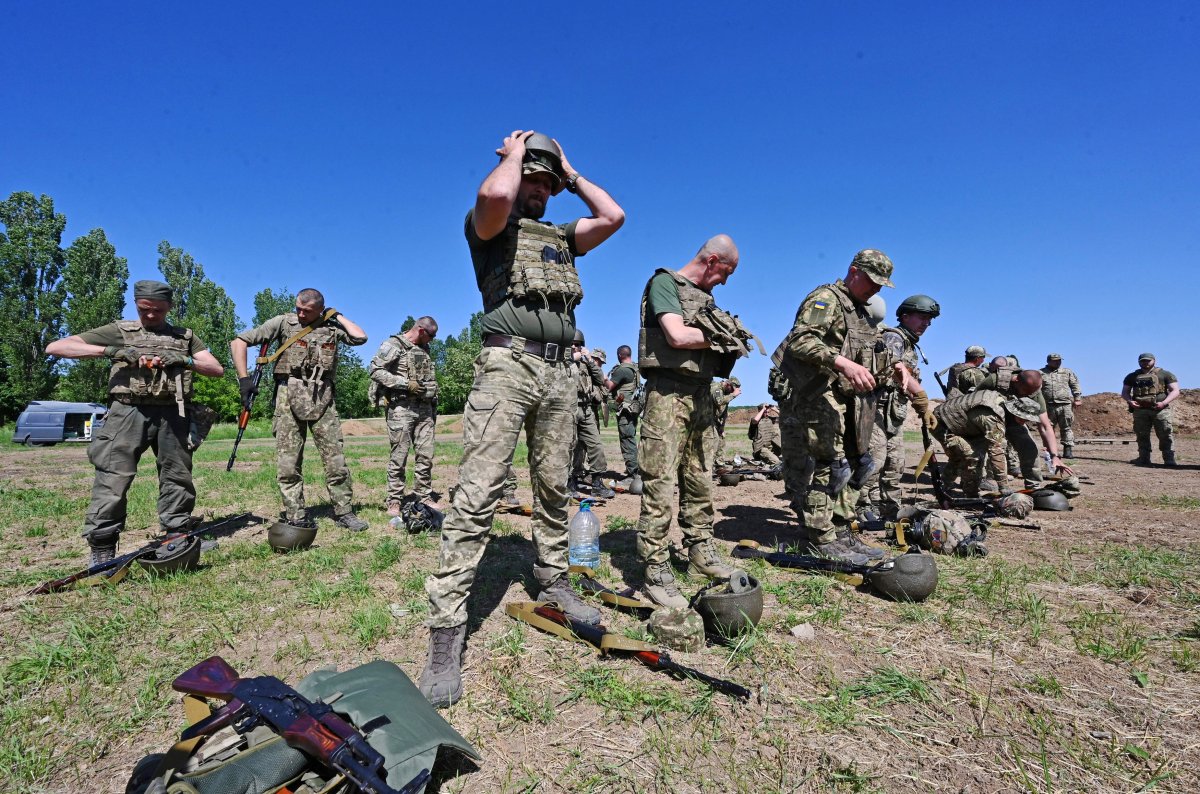Kyiv officials have tried to temper expectations about the upcoming counteroffensive against Russian President Vladimir Putin's forces, but many Western officials and analysts feel the stakes are high for Ukraine.
"This counteroffensive is going to be absolutely a game-changer one way or the other on whether or not Congress can pass a supplemental [spending package] on Ukraine," House Foreign Affairs Committee Chair Michael McCaul, a Texas Republican, said this week when speaking about congressional aid to Ukraine, according to Punchbowl News.
Republican Senator Lindsey Graham of South Carolina also spoke enthusiastically last week about the counteroffensive, and many Democratic lawmakers have expressed support for giving Ukraine what it needs to mount a successful answer to Putin.
"The stakes of the counteroffensive for Ukraine is the need to show Western backers that the investments and risks of the past year and a half bear fruit," Northwestern University political science professor William Reno told Newsweek. "Significant failure would open more political space for Western critics of aid, particularly in upcoming elections in Europe and the U.S."

Reno added that Ukrainian President Volodymyr Zelensky and his "government also needs to show Ukrainian people that their sacrifices are not in vain and that conquered territories can be reclaimed."
Last month, Natalia Galibarenko—ambassador of Ukraine's mission to NATO—seemingly tried to lower expectations about the coming counteroffensive. During an interview with the Lithuanian media outlet LRT, she emphasized that "one counteroffensive cannot determine the course of the entire war." Instead, she said, "several counteroffensives" may be needed for such a result.
But a successful counteroffensive now "would reinforce the Ukrainian advantages while further weakening the Russians," Lawrence C. Reardon, a professor of political science at the University of New Hampshire, told Newsweek.
"Should the counteroffensive be unsuccessful, the U.S. and Europeans would continue to provide arms, but might be more open to peace initiatives that would freeze in place the two lines," Reardon said.
George Mason University Schar School of Policy and Government professor Mark N. Katz told Newsweek that a failed counteroffensive would likely result in some voices in the West wanting to pull back support to Ukraine.
"They will argue that it is time for Ukraine to adjust to painful reality and agree to a ceasefire with Russia that leaves Moscow in possession of much or even all the territory that it now occupies," Katz said. "Putin is hoping for this to occur."
"By contrast, a successful Ukrainian offensive now—however that is defined—will not only make it easier for Ukraine's congressional supporters [in the United States] to keep on providing military assistance to Ukraine, but also more difficult for its opponents to make a convincing case about why this should not continue," Katz said.
As for the consequences on the battlefield, David Silbey—an associate professor of history at Cornell and director of teaching and learning at Cornell in Washington—told Newsweek that a failed counteroffensive "would most likely reestablish the status quo stalemate."
"Unless the Russians had enough forces to manage a substantial attack of their own, the situation would end up back where it started, although with lots of casualties," Silbey said. "So it would be a failure, but not a war-ending one."
On Monday, President Joe Biden was asked about the anticipated counteroffensive by Agence France-Presse. The news agency reported that the president showed his support by "silently raising his hand and crossing his middle and index fingers."
Biden and many other politicians have staked their political reputations on Zelensky thwarting Putin's invasion, and Ukraine's cause would be greatly benefited by the counteroffensive going well.
But a failed counteroffensive could have "substantial consequences," Silbey said.
"Both the U.S. and Ukraine have been talking up the counteroffensive for months now, with tidbits about combined arms training and new weapons," he said. "If the offensive failed, it would be a blow to the political prestige of both countries."
Uncommon Knowledge
Newsweek is committed to challenging conventional wisdom and finding connections in the search for common ground.
Newsweek is committed to challenging conventional wisdom and finding connections in the search for common ground.
About the writer
Jon Jackson is an Associate Editor at Newsweek based in New York. His focus is on reporting on the Ukraine ... Read more
To read how Newsweek uses AI as a newsroom tool, Click here.






